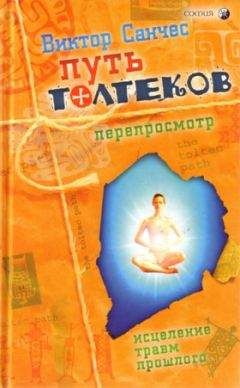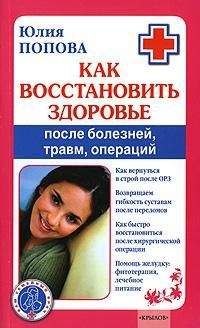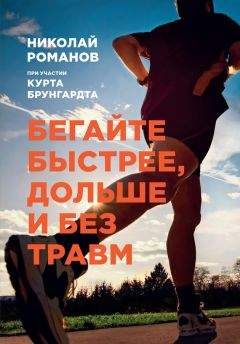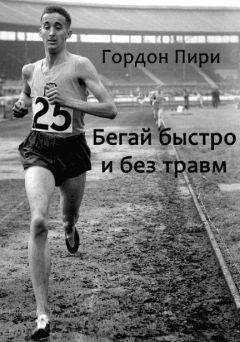Кристин Коннелли - Исцеление от эмоциональных травм – путь к сотрудничеству, партнерству и гармонии
Brazier C., The Heartbreak // New Internationalist (420): 4–9, 2009.
Bronfenbrenner U., Two Worlds of Childhood: US and USSR. NY: Simon & Schuster, 1972.
Brooks N., Cultural Responses to Aridity in the Middle Holocene and Increased Social Complexity // Quaternary International 151: 29–49, 2006.
Brown P., Sobering news for pregnant women // New Scientist (2558), 2006.
Brown T. Jr., The Tracker. NY: Berkley Books, 1978.
Butler C. T. L. and Rothstein A., On Conflict and Consensus: A handbook on Formal Consensus decisionmaking. 2nd ed. Portland: Food Not Bombs Publishing, 1991.
Campbell D., It’s good for women to suffer the pain of a natural birth, says medical chief // The Observer, 12 July 2009.
Caplan P. J., Vets aren’t crazy – War Is // Tikkun (Sept/Oct):44–48, 2007.
Carvel J., Rising Divorce Tide Threatens 1 in 2 Couples // The Guardian, 28 March 2008.
Champagne F. A., Epigenetic mechanisms and the transgenerational effects of maternal care // Frontiers in Neuroendocrinology 29 (3): 386–397, 2008.
Chapman E., Baron-Cohen S., Auyeung B., Knickmeyer R., Taylor K. and Hackett G., Fetal testosterone and empathy: Evidence from the Empathy Quotient (EQ) and the “Reading the Mind in the Eyes” Test // Social Neuroscience 1 (2): 135–148, 2006.
Coghlan A., Booze Control // New Scientist 201 (2701): 22–23, 2009.
Cyrulnik B., Resilience: How your inner strength can set you free from the past. London: Penguin, 2009.
de Waal F. B. M., Bonobo Sex and Society // Scientific American: 82–88, 1995.
de Waal F. B. M., The empathic ape, 8 October 2005 // http://space.newscientist.com/article/ mg19125612.100.
de Waal F. B. M., Bonobo’s, Left and Right, 8 August 2007 // http://www.skeptic.com/ eskeptic/07–08–08.html#feature.
de Waal F. B. M., Lanting F., Bonobo: The Forgotten Ape: University of California Press, 1998.
de Young M., Collective Trauma: Insights from a Research Errand. American Academy of Experts in Traumatic Stress 1998 // http://www.aaets.org/article55.htm, 2009.
DeMeo J., Saharasia: The 4000 BCE origins of child abuse, sexrepression, warfare and social violence in the deserts of the old world. 2nd ed. Ashland: Natural Energy Works, 2006.
Deng B., Deng А., Ajak В. and with Bernstein J. A., They Poured Fire on Us from the Sky: The true story of three lost boys from Sudan. NY: Public Affairs, 2005.
Diamond J., The Third Chimpanzee: The evolution and future of the human animal. Harper Perennial ed. NY: Harper Collins, 1992.
Diamond J., Guns, Germs and Steel: A short history of everybody for the last 13,000 years: Vintage, 1998.
Diamond L., The Peace Book: 108 simple ways to create a more peaceful world. 2nd ed. Berkeley: Conari Press, 2001.
Dingwall E. J., Artificial Cranial Deformation: A contribution to the study of ethnic mutilations. London: John Bale, Sons, and Daniellson, 1931.
Disordered Eating. Causes of Eating Disorders 2009 [cited 2009].
Dutch Famine Study. Dutch Famine Study 2008 // http://www.hongerwinter.nl/ index.php?option=com_content&task=view&id=12&Itemid=27.
Eating Disorders Association. 2009. Understanding Eating Disorders 2009 // http:// www.b-eat.co.uk/AboutEatingDisorders/WhatisanEatingdisorder.
Eckersley P., Knowledge wants to be free too // New Scientist 202 (2714): 28–29, 2009.
Eisler R., The Chalice and the Blade. San Francisco: Harper & Row, 1987.
Eisler R., The Power of Partnership. California: New World Library, 2002.
Eisler R., The Real Wealth of Nations: Creating a caring economics. San Francisco: Berrett-Koehler, 2007.
Ellwood W., This toxic life // New Internationalist (415): 4–7, 2008.
Fehr E. and Fischbacher U., The Nature of Human Altruism // Nature 425: 785–791, 2003.
Fisher R. and Ury W., Getting to Yes: Negotiation an agreement without giving in. 2nd ed. London: Random House, 1991.
Fox J., Poetic Medicine: A kind of magic. Shift (20): 15–19, 2008.
Fry D. P., The Human Potential for Peace: An anthropological challenge to assumptions about war and violence. Oxford: Oxford University Press, 2006.
Gardner H., Frames of Mind: The theory of multiple intelligences. 2nd ed: Fontana, 1993.
Gaskin I. M., Spiritual Midwifery. 4th ed: Book Publishing Company, 2002.
Geddes L., Are successful traders born not made? // New Scientist 201 (2691): 11, 2009.
Geddes L., Sedatives may slow trauma recovery // New Scientist 204 (2728): 12, 2009a.
Gendlin E. T., Focusing: How to gain direct access to your body’s knowledge. Rev. ed. London: Rider, 2003.
Gerhardt S., Why Love Matters: How affection shapes a baby’s brain. NY: Routledge, 2004.
Gilbert R., Widom C. S., Browne K., Fergusson D., Webb E. and Janson S., Burden and consequences of child maltreatment in high-income countries // The Lancet 373 (9657): 68–81, 2009.
Gilbert S. E., Developmental Biology. 6th ed. Sunderland: Sinauer Associates, 2000.
Glover V., Fetal and Neonatal Stress Research Group 2005 // http://www1.imperial. ac.uk/medicine/research/researchthemes/reprodscience/fetalstressgroup/.
Goleman D., Emotional Intelligence: Why it can matter more than IQ. London: Bloomsbury Publishing, 1995.
Gopnik A., The Philosophical Baby: What children’s minds tell us about truth, love & the meaning of life. London: The Bodley Head, 2009.
Gorski L., Sweet M. and Sehring, In Touch: The foundation of experience, edited by K. E. Barnard and T. B. Brazelton, 1990.
Gosline A., Nipping teen crime in the bud // New Scientist (2651): 38–41, 2008.
Gosline A., The five ages of the brain: 3. Adolescence: Wired, and rewiring // New Scientist 202 (2702): 28–30, 2009.
Grieg J., Suicide psychology // New Scientist 201 (2701): 24, 2009.
Grof S., The Holotropic Mind. San Francisco: Harper Collins, 1990.
Grof S. and Grof С., eds., Spiritual Emergency: When personal transformation becomes a crisis. Los Angeles: Jeremy P. Tarcher, 1989.
Harlow H., Love in infant monkeys // Scientific American 200 (6): 68, 1959.
Harms L., Understanding Human Development: A multidimensional approach. Melbourne: Oxford University Press, 2005.
Heider J., The Tao of Leadership. Atlanta: Humanics New Age, 1985.
Henderson M., Imprint of famine seen in genes of Second World War babies 60 years on // Times Online, 28 October 2008.
Highfield R., In your face // New Scientist 201 (2695):29–32, 2009.
Hollick M., The Science of Oneness: A worldview for the twentyfirst century. Ropley: O Books, 2006.
Hollick M. and Connelly С., Sustainable Communities: Lessons from aspiring eco-villages. Perth, Australia: Praxis Education, 2008.
Horgan J., The End of War // New Scientist 203 (2715): 38–41, 2009.
Ingerman S., Soul Retrieval: Mending the Fragmented Self. San Francisco: HarperCollins, 1991.
Kaplan M., Why bonobos make love, not war, 30 Nov 2006 // http://www. newscientist.com/article.ns?id=mg19225801.900.
Katie B., Loving What Is: Four questions that can change your life. London: Rider, 2002.
Kornfield J., A Path with Heart: A guide through the perils and promises of spiritual life. New York: Bantam Books, 1993.
Kornfield J., Even the Best Meditators Have Old Wounds to Heal: Combining meditation and psychotherapy. In Paths Beyond Ego, edited by R. Walsh and F. Vaughan. New York: Putnam, 1993a.
Landau E., PTSD Linked to Higher Post-Surgery Death Rate // http://edition. cnn.com/2009/HEALTH/10/20/ptsd.veterans.mortality/index.html?eref=igoogle_cnn, 2009.
Lerro B., Power in Eden: The emergence of gender hierarchies in the ancient world Trafford Books, 2005.
Levine P. A., Healing Trauma. Boulder: Sounds True, 2008.
Levine P. A. and Frederick А., Waking the Tiger: Healing Trauma. Berkeley: North Atlantic Books, 1997.
Lindner E. G., Making Enemies: Humiliation and International Conflict. Santa Barbara: Praeger, 2006.
Lipton B. H., The Biology of Belief: Unleashing the power of consciousness, matter, and miracles. Santa Rosa: Mountain of Love, 2005.
Loftus E. F. and Pickrell J. E., The Formation of False Memories // Psychiatric Annals 25: 720–725, 1995.
MacLean P. D., Triune Conception of the Brain and Behaviour. Toronto: University of Toronto Press, 1974.
MacMillan H. L., Wathen C. N., Barlow J., Fergusson D. M., Leventhal J. M. and Taussig H. N., Interventions to prevent child maltreatment and associated impairment // The Lancet 373 (9657): 250–266, 2009.
Macy J., The Way to the Forest. Western Australia: The Gaia Foundation, 1995.
Malaspina, D., Corcoran C., Kleinhaus K. R., Perrin M. C., Fennig S., Nahon D., Friedlander Y. and Harlap S., Acute maternal stress in pregnancy and schizophrenia in offspring: A cohort prospective study. BMC Psychiatry 8, 2008.
Marchant J., Cell suicide is behind prenatal brain damage // New Scientist (2435), 2004.
Matthews R., Opposites Detract // New Scientist: 39–41, 2004.
McAnarney E. B., Adolescents and Touch. In Touch: The foundation of experience, edited by K. E. Barnard and T. B. Brazelton, 2004.
McFetridge G., Peak States of Consciousness: Theory and Applications. Vol. 1: Breakthrough techniques for exceptional quality of life. Hornby Island: Institute for the Study of Peak States Press, 2004.
McFetridge G., Peak States of Consciousness: Theory and Applications. Vol. 2: Acquiring Extraordinary Spiritual and Shamanic States. Hornby Island: Institute for the Study of Peak States Press, 2008.
McGilvray A., Researchers map human epigenome // Australian Broadcasting Commission, 15 October 2009.
Mental Health Foundation. 2009. Statistics on Mental Health 2009 // http://www. mentalhealth.org.uk/information/mental-healthoverview/statistics/#howmany.
Mindell A., Sitting in the Fire. Portland: Lao Tse Press, 1995.
Mithen S., The Prehistory of the Mind: A search for the origins of art, religion and science. London: Thames & Hudson, 1996.
Mithen S., After the Ice: A Global Human History 20,000–5,000 BC. London: Weidenfeld & Nicholson, 2003.
Montagu A, ed. Learning Non-Aggression: The experience of non-literate societies. Oxford: Oxford University Press, 1978.
Motluk A., Can Experiences before Conception be Passed on? // New Scientist 201 (2694): 12, 2009.
Mussen P. and Eisenberg-Berg N., Roots of Caring, Sharing and Helping: The Development of Prosocial Behaviour in Children. San Francisco: W. H. Freeman, 1977.
National Institute of Mental Health. 2008. The Numbers Count: Mental Disorders in America // http://www.nimh.nih.gov/health/publications/the-numberscount-mental-disorders-in-america/index.shtml.
Neugebauer R., Accumulating Evidence for Prenatal Nutritional Origins of Mental Disorders // J. Am. Med. Assoc. 294 (5):621–623, 2005.
Nicholls H., Taming the Beast // New Scientist 204 (2728):40–43, 2009.
Nowak R., The e-Doctor will see you now // New Scientist 200 (2681): 24–25, 2008.
Oatley K., Keltner D. and Jenkins J. M., Understanding Emotions. 2nd ed. Oxford: Blackwell, 2006.
Olshansky B. and Dossey L., Retroactive Prayer: An Outrageous Hypothesis? // Network: The Scientific and Medical Network Review (84): 3–11, 2004.
Orbach S., The Unstable Body // New Scientist 201 (2694): 28–29, 2009.
Orme-Johnson D. W., Preventing Crime Through the Maharishi Effect. J Offender Rehabilitation 36 (1–4), 2003.
Orme-Johnson D. W., Dillbeck M. C. and Alexander C. N., Preventing Terrorism and International Conflict: Effects of Large Assemblies of Participants in the Transcendental Meditation and TM-Sidhi Programs. J Offender Rehabilitation 36 (1–4), 2003.
Pariante C. M., Depression, Stress and the Adrenal Axis: British Society for Neuroendocrinology, 2003.
Perry B. D., An Interview with Bruce D. Perry by Lou Bank // http://www. childtrauma.org/CTAMATERIALS/loubank.asp, 1996.
Perry B. D., Incubated in Terror: Neurodevelopmental Factors in the “Cycle of Violence” / Children in Violent Society, edited by J. D. Osofsky, 1997.
Perry B. D., Memories of Fear: How the brain stores and retrieves physiologic states, feelings, behaviors and thoughts from traumatic events / Splintered Reflections: Images of the body in trauma, edited by J. Goodwin and R. Attias. NY: Basic Books, 1999.
Perry B. D., Trauma and Terror in Childhood: The Neuropsychiatric Impact of Childhood Trauma / Handbook of Psychological Injuries: Evaluation, Treatment and Compensable Damages, edited by I. Schulz, S. Carella and D. O. Brady: American Bar Association Publishing, 2000.
Perry B. D., Bonding and Attachment in Maltreated Children: Consequences of Emotional Neglect / Childhood: Child Trauma Academy, 2001.
Perry B. D., Brain Structure and Function II: Special Topics Informing Work with Maltreated Children / Interdisciplinary Education Series, edited by B. D. Perry: ChildTrauma Academy, 2002a.
Perry B. D., Childhood Experience and the Expression of Genetic Potential: What childhood neglect tells us about nature and nurture // Brain and Mind 3: 79–100, 2002b.
Perry J. W., The Far Side of Madness. Englewood Cliffs. NJ: Prentice-Hall, 1974.
Pert C. B., Molecules of Emotion: Why you feel the way you feel. NY: Simon & Schuster, 1997.
Powell D., Treat a female rat like a male and its brain changes // New Scientist 201 (2690):8, 2009.




